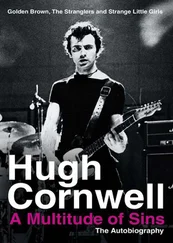“I was just thinking about Pat La Blonde while we were down at the chowder house,” he said, staying his course ahead of her in long studious strides as though she was beside him.
Pat La Blonde was Tom’s partner who’d been killed when Tom had been wounded. Tom had never seemed very interested in talking about Pat before. She lengthened her steps to be beside him, give evidence of a visible listener. “I’m here,” she said and pinched a fold of his sweaty shirt.
“I just realized,” Tom went on, “all the life that Pat missed out on. I think about it all the time. And when I do, everything seems so damned congested. When Pat got killed, everything started getting in everything else’s way for me. Like I couldn’t have a life because there was so much confusion. I know you don’t think that’s crazy.”
“No, I don’t,” Nancy said. She thought she remembered Tom saying these very things once. Though it was also possible she had thought these things about him. Marriage was that way. Possibly they had both felt the same thing as a form of mourning. “It’s why you quit the force, isn’t it?”
“Probably.” Tom stopped, put his hands on his hips and took in an estimable yellow Dutch colonial sitting far back among ginkgos and sugar maples, and reachable by a curving flagstone path from a stone front wall to its bright-red, perfectly centered, boxwood-banked front door. “That’s a nice house,” he said. A large black Labrador had been lying in the front yard, but when Tom spoke it struggled up and trotted out of sight around the house’s corner.
“It’s lovely.” Nancy touched the back of his shirt again, down low where it was damp and warm. The muscles were ropy here. She was sorry not to have touched his back recently. In Freeport, last night.
“I think,” Tom said, and seemed reluctant, “since that time when Pat was killed, I’ve been disappointed about life. You know it?” He was still looking at the yellow house, as if that was all he could stand. “Or I’ve been afraid of being disappointed. Life was just fine, then all at once I couldn’t figure out a way to keep anything simple. So I just made it more complicated.” He shook his head and looked at her.
Nancy carefully removed her hand from the warm small of his back and put both her hands behind her in a protective way. Something about Tom’s declaration had just then begun to feel like a prologue to something that might, in fact, spoil a lovely day, and refashion everything. Possibly he had planned it this way.
“Can you see a way now to make it less complicated?” she said, looking down at her leather shoe toes on the grainy concrete sidewalk. A square had been stamped into the soft mortar, and into the middle of it was incised PENOBSCOT CONCRETE—1938. She was purposefully not making eye contact.
“I do,” Tom said. He breathed in and then out importantly.
“So can I hear about it?” It annoyed her to be here now, to have something sprung on her.
“Well,” Tom said, “I think I could find some space in a town like this to put my workshop. If I concentrated, I could probably dream up some new toy shapes, maybe hire somebody. Expand my output. Go ahead with the website idea. I think I could make a go of it with things changing here. And if I didn’t, I’d still be in Maine, and I could find something else. I could be a cop if it came to that.” He had his blue, black-flecked eyes trained on her, though Nancy had chosen to listen with her head lowered, hands behind her. She looked up at him now and created a smile for her lips. The sun was in her face. Her temples felt wonderfully warm. A man in khaki shorts was just exiting the yellow house, carrying a golf bag, headed around to where the black Labrador had disappeared. He noticed the two of them and waved as if they were neighbors. Nancy waved back and redirected her smile out at him.
“Where do I go?” she said, still smiling. A brown-and-white Belfast police cruiser idled past, its uniformed driver paying them no mind.
“My thought is, you come with me,” Tom said. “It can be our big adventure.” His solemn expression, the one he’d had when he was talking about Pat La Blonde, stayed on his handsome face. Not a death’s face at all, but one that wanted to signify something different. An invitation.
“You want me to move to Maine?”
“I do.” Tom achieved a small, hopeful smile and nodded.
What a very peculiar thing, she thought. Here they were on a street in a town they’d been in fewer than two hours, and her estranged husband was suggesting they leave their life, where they were both reasonably if not impossibly happy, and move here.
“And why again?” she said, realizing she’d begun shaking her head, though she was also still smiling. The roof workers were once more laughing at something in the clear, serene afternoon. The chain saw was still silent. Hammering commenced again. The man with the golf bag came backing down his driveway in a Volvo station wagon the same bright-red color as his front door. He was talking on a cell phone. The Labrador was trotting along behind, but stopped as the car swung into the street.
“Because it’s still not ruined up here,” Tom said. “And because I know too much about myself where I am, and I’d like to find out something new before I get too old. And because I think if I — or if we — do it now, we won’t live long enough to see everything get all fucked up around here. And because I think we’ll be happy.” Tom suddenly glanced upward as if something had flashed past his eyes. He looked puzzled for an instant, then looked at her again as if he wasn’t sure she would be there.
“It isn’t exactly life-by-forecast, is it?”
“No,” Tom said, still looking befuddled. “I guess not.” He could be like an extremely earnest, extremely attractive boy. It made her feel old to notice it.
“So, am I supposed to agree or not agree while we’re standing here on the sidewalk?” She thought of the woman pinning clothes to a line, wearing white gloves. No need to reintroduce that, or the withering cold that would arrive in a month.
“No, no,” Tom said haltingly. He seemed almost ready to take it all back, upset now that he’d said what he wanted to say. “No. You don’t. It’s important, I realize.”
“Did you plan all this,” she asked. “This week? This whole town? This moment? Is this a scheme?” She was ready to laugh about it and ignore it.
“No.” Tom ran his hand through his hair, where there were scatterings of assorted grays. “It just happened.”
“And if I said I didn’t believe you, what then?” She realized her lips were ever-so-slightly, disapprovingly everted. It had become a habit in the year since Crystal.
“You’d be wrong.” Tom nodded.
“Well.” Nancy smiled and looked around her at the pretty, serious houses, the demure, scenically-shaded street, the sloped lawns that set it all off just right for everybody. If you seek a well-tended ambience, look around you. It was not the Michigan-of-the-East. Why wouldn’t one move here? she thought. It was a certain kind of boy’s fabulous dream. In a way, the whole world dreamed it, waited for it to materialize. Odd that she never had.
“I’m getting tired now.” She gave Tom a light finger pat on his chest. She felt in fact heavy-bodied, older even than she’d felt before. Done in. “Let’s find someplace to stay here.” She smiled more winningly and turned back the way they’d come, back down the hill toward the middle of Belfast.
In the motel — a crisp, new Maineliner Inn beyond the bridge they’d seen at lunch, where the room offered a long, unimpeded back-window view of the wide and sparkling bay— Tom seemed the more bushed of the two of them. In the car he’d exhibited an unearned but beleaguered stoicism that had no words to accompany its vulnerable-seeming moodiness. And once they were checked in, had their suitcases opened and the curtains drawn on the small cool spiritless room, he’d turned on the TV with no sound, stretched out on the bed in his shoes and clothes, and gone to sleep without saying more than that he’d like to have a lobster for dinner. Sleep, for Tom, was always profound, congestion or no congestion.
Читать дальше












